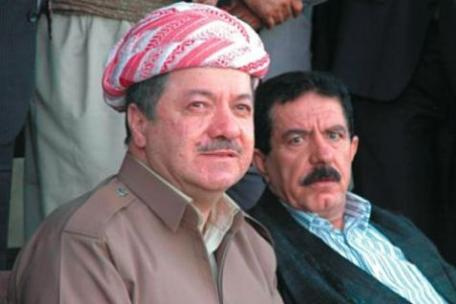Supporting Syrian Kurds Does Not Mean Intervention

A meeting with 210 Kurdish personalities from various countries, including Masoud Barzani - the head of the Kurdish Region of Iraq- on the future of Kurds in Syria took place in Arbil last Saturday. Masoud Barzani emphasized the necessity of supporting the Kurds in Syria: “We are not seeking to interfere in Syrian Kurds’ affairs, but we strive to aid them in any decisions they make.” In an interview with IRD, Nazem Dabbagh – Representative of Kurdistan Autonomous Region in Iran – discussed the issue further.
IRD: Wouldn’t the support of Barzani create conflict between Syria and Kurdistan?
ND: Barzani is not seeking to meddle in internal Syrian affairs. Any Kurdish person is sensitive to the trouble of other Kurds. Currently the people of Syria, including Syrian Kurds, are facing difficulties that has caused concern all over the world. Moreover, Iran has advised the Syrian government to resolve any internal conflict using peaceful methods and to take the interest of the Syrian minorities into consideration. Barzani’s remarks were in line with Iraq’s policy on Syria, and he is not interfering with Syrian internal affairs.
IRD: How do you evaluate the Kurdish representatives meeting in Iraqi Kurdistan? Can the gathering of Turkish, Syrian, and Iranian Kurds cause any concerns for the central governments?
ND: No, None of Barzani’s meetings would cause any trouble for countries with Kurdish residents; rather, our Kurdish leader’s policy is to pursue any issue within the countries’ constitutions.
IRD: Wouldn’t any of the Kurdish representatives who attend these meetings face pressure from their government?
ND: Historically, there has always been pressure on the Kurds and this will persist. The real issue here is to note what the Kurds are seeking to gain from these meetings, and how their central governments can accommodate those demands.
IRD: In an interview with the BBC, Barzani stated that he is seeking independence. What was the purpose of his statement?
ND: If you listen carefully to that interview you will recognize that Barzani’s statement did not say that he was seeking independence; rather, he mentioned that in the event the Kurds seek independence he will not hesitate to aid them. He never said that he was seeking independence for the Kurds himself.
IRD: In the event of the Kurds seeking independence, within which country’s borders would this take place?
ND: I cannot speculate on certain issues. The great country of Kurdistan that once existed is now divided and each part resides within different countries’ borders. Today, the Kurds live in different countries and are happy to follow the local governments’ laws under the condition that each country respectfully acknowledges the rights of its Kurdish residents.
IRD: Would declaring independence count as declaring war on Syria, Turkey and Iraq?
ND: Yes, and precisely for this reason the Kurds are not seeking independence, as it will lead to a war in the region. The Kurds peacefully pursue their demands within the countries’ constitutions. In other words, all the Kurds follow the same policies of Iraqi Kurds, which has led to unity and integration in Iraq.
IRD: The government of Kurdistan is due to change soon and Kurdish opposition groups are allowed to participate in the new government. What is Barzani’s strategy regarding this matter?

